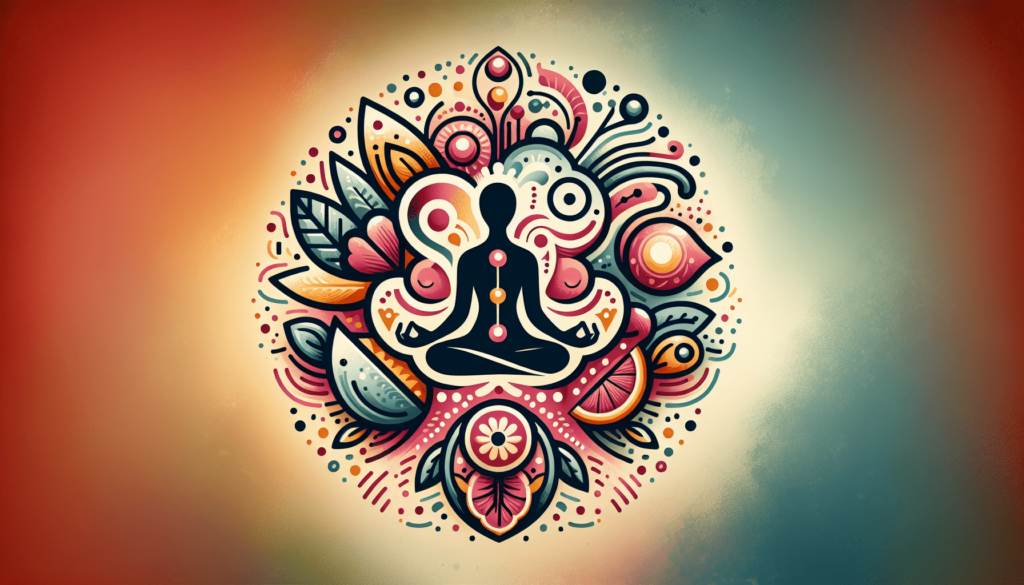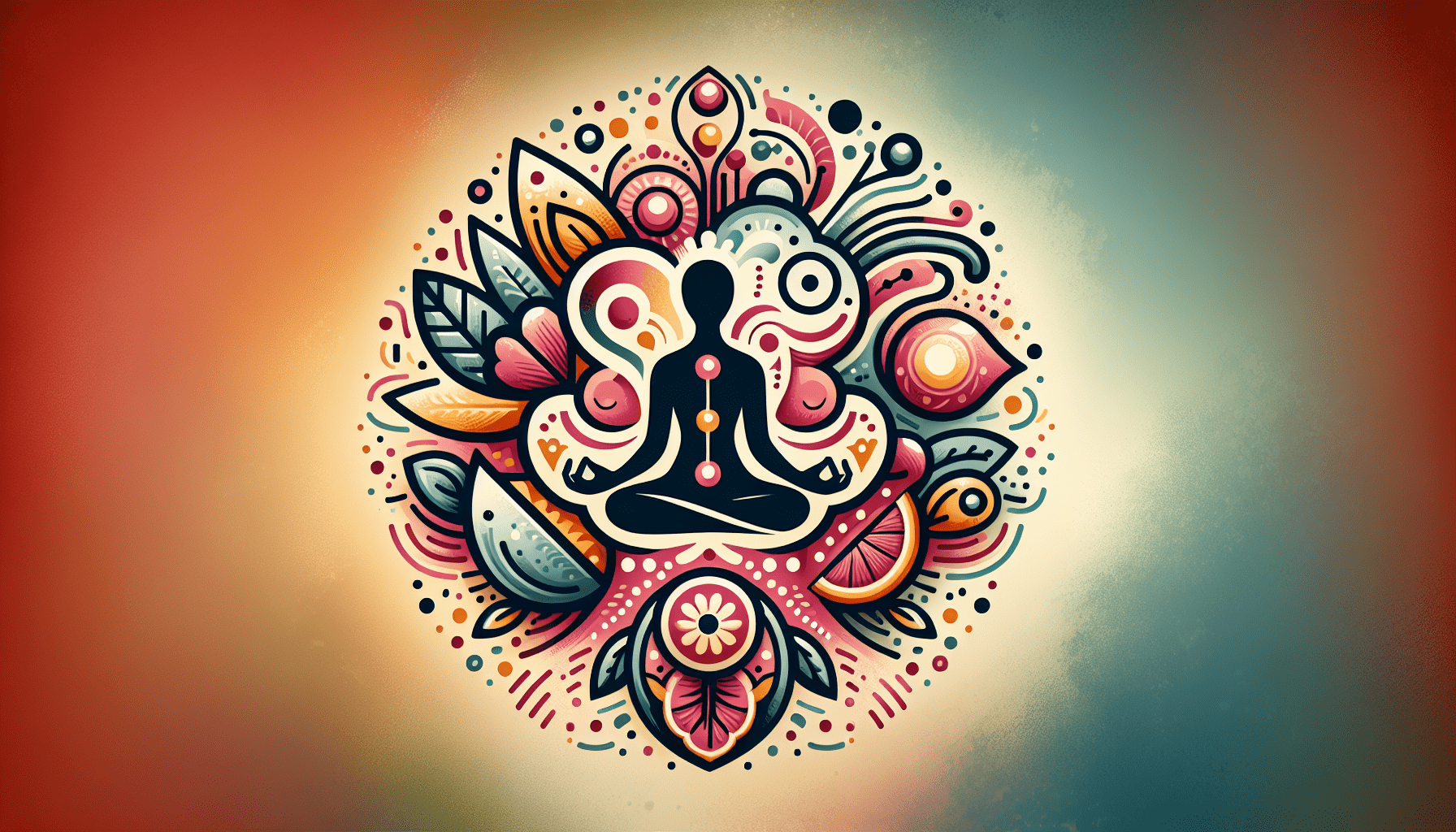In today’s fast-paced world, prioritizing our overall well-being has become more important than ever before. And it goes beyond just hitting the gym or going on a run – it’s about nurturing our mind, body, and soul. This is where holistic fitness comes into play. Holistic fitness is not simply about the physical aspect of exercise, but rather, it embraces a comprehensive approach to wellness. It encompasses everything from mindfulness practices and nourishing nutrition to social connections and emotional well-being. So, if you’re ready to embark on a journey towards a healthier and happier you, join the holistic fitness movement and discover a whole new world of well-being.

Physical Fitness
Cardiovascular Health
When it comes to physical fitness, maintaining a healthy cardiovascular system is key. Regular cardiovascular exercise, such as running, swimming, or cycling, helps to strengthen your heart and lungs and improve your overall cardiovascular endurance. This type of exercise not only helps to lower the risk of heart disease, but also increases your energy levels and improves your mood. Aim for at least 150 minutes of moderate-intensity cardiovascular exercise per week to reap these benefits and keep your heart pumping strong.
Strength and Endurance
In addition to cardiovascular health, building strength and endurance is essential for a well-rounded physical fitness routine. Strength training exercises, such as lifting weights or using resistance bands, help to increase muscle mass, improve bone density, and enhance overall functional fitness. Endurance exercises, such as brisk walking or cycling, help to improve stamina and ensure that your muscles can perform for extended periods of time. Incorporate both strength and endurance exercises into your fitness routine to enhance your physical capabilities and feel stronger in everyday life.
Flexibility and Mobility
While cardiovascular health and strength are important, it’s also crucial to focus on flexibility and mobility. Stretching exercises and activities such as yoga or Pilates can improve your range of motion, prevent injuries, and enhance your overall athletic performance. Flexibility and mobility exercises not only increase your physical capabilities, but also help to relieve muscle tension, improve posture, and reduce the risk of chronic pain. Make sure to include regular stretching and mobility work in your fitness routine to keep your body agile and flexible.
Nutrition
Importance of Balanced Diet
Physical fitness is not just about exercise, but also about fueling your body with the right nutrients. A balanced diet that includes a variety of fruits, vegetables, whole grains, lean proteins, and healthy fats is essential for maintaining optimal health. Each nutrient plays a specific role in supporting your bodily functions and providing the energy needed for daily activities. Eating a well-balanced diet can improve your immune system, boost your energy levels, and support overall physical and mental wellbeing.
Eating for Energy
In addition to a balanced diet, it’s important to eat for energy. Fueling your body with the right foods before and after exercise can enhance your performance and aid in recovery. Opt for complex carbohydrates, such as whole grains and vegetables, to provide a steady release of energy. Include sources of lean protein, such as chicken, fish, or tofu, to support muscle repair and growth. Don’t forget healthy fats, such as avocados or nuts, which provide long-lasting energy and support brain function. By nourishing your body with the right foods, you’ll have the energy to power through your workouts and feel your best throughout the day.
Nutrients for Recovery and Repair
In addition to providing energy, certain nutrients are crucial for recovery and repair. After a workout, it’s important to replenish your body with nutrients that support muscle repair and reduce inflammation. Foods rich in antioxidants, such as berries or leafy greens, can help to combat the oxidative stress caused by exercise. Consuming an adequate amount of protein, whether through whole foods or supplements, is also important for muscle recovery. Additionally, nutrients such as omega-3 fatty acids and vitamin D can support joint health and overall wellbeing. By prioritizing nutrient-rich foods, you’ll help optimize your body’s recovery and repair processes.
Mental Wellbeing
Stress Management
Physical fitness is closely tied to mental wellbeing, and managing stress is an essential part of maintaining holistic fitness. Regular exercise can help to reduce stress levels and release endorphins, which are known as “feel-good” hormones. Incorporating stress-reducing activities such as yoga, meditation, or deep breathing exercises into your routine can further enhance your ability to manage and cope with stress. Taking time for self-care and engaging in activities that bring you joy can also contribute to overall mental wellbeing and help you maintain a positive mindset.
Mindfulness and Meditation
Practicing mindfulness and meditation has been shown to have numerous benefits for mental and physical health. Mindfulness involves being fully present and aware of your thoughts, feelings, and sensations in the present moment. Engaging in regular meditation can help to reduce anxiety, improve focus and attention, and promote emotional resilience. By incorporating mindfulness and meditation practices into your daily routine, you can cultivate a sense of calm and better manage the challenges of everyday life.
Positive Thinking
Maintaining a positive mindset is important for overall mental wellbeing. Positive thinking can help to reduce stress, improve mood, and increase resilience. It involves focusing on the positive aspects of a situation, reframing negative thoughts, and practicing gratitude. Engaging in positive self-talk and surrounding yourself with supportive and positive influences can contribute to a healthier mindset. By cultivating a positive outlook, you’ll not only enhance your mental wellbeing, but also improve your overall quality of life.

Sleep and Rest
Quality and Quantity of Sleep
Getting enough high-quality sleep is essential for overall health and wellbeing. Sleep plays a crucial role in the body’s recovery and repair processes, as well as in memory consolidation and cognitive function. Aim for 7-9 hours of quality sleep each night to ensure that your body and mind are fully rested and rejuvenated. Establishing a consistent bedtime routine, creating a comfortable sleep environment, and practicing relaxation techniques before bed can help promote better sleep and enhance your overall wellbeing.
Importance of Rest and Recovery
In addition to sleep, incorporating periods of rest and recovery into your daily routine is important for holistic fitness. Rest days, where you take a break from intense exercise, allow your muscles to repair and rebuild. Recovery activities, such as foam rolling, stretching, or taking a leisurely walk, can help reduce muscle soreness and improve overall mobility. Prioritizing rest and recovery is essential for preventing burnout, minimizing the risk of injuries, and maintaining long-term physical and mental wellbeing.
Emotional Balance
Managing Emotions
Emotional balance is a key component of holistic fitness. Managing emotions involves recognizing, understanding, and appropriately responding to your own emotions. It’s important to develop healthy coping mechanisms and strategies to deal with stress, sadness, anger, or other negative emotions. Engaging in activities that bring you joy, practicing self-care, and seeking support from friends, family, or professionals when needed can help promote emotional balance. By developing emotional intelligence and resilience, you’ll be better equipped to handle life’s challenges and maintain overall wellbeing.
Building Resilience
Resilience is the ability to bounce back and recover from challenges or setbacks. Building resilience is important for both mental and physical wellbeing. Engaging in activities that help to develop and strengthen resilience, such as setting goals, learning from failures, and developing a positive mindset, can enhance your ability to cope with stress and adversity. By building resilience, you’ll be better equipped to navigate life’s ups and downs and maintain a sense of overall wellbeing.
Social Connection
Building Supportive Relationships
Social connection is a fundamental aspect of holistic fitness. Building and maintaining supportive relationships can provide emotional support, enhance wellbeing, and contribute to a sense of belonging. Engage in activities that foster social connection, such as joining clubs or organizations, participating in group fitness classes, or volunteering in your community. Cultivating meaningful relationships and establishing a support network can have a positive impact on both your physical and mental health.
Community Engagement
Engaging with your community is another important aspect of holistic fitness. Actively participating in community events, volunteering, or supporting local initiatives can help foster a sense of purpose, connection, and overall wellbeing. Community engagement not only benefits you personally, but also strengthens social bonds and contributes to the overall health of your community. By giving back and being an active member of your community, you’ll enhance your own wellbeing and make a positive impact on those around you.
Environmental Wellness
Nature and Outdoor Activities
Spending time in nature and engaging in outdoor activities can provide numerous benefits for holistic fitness. Being in nature has been shown to reduce stress, improve mood, and enhance cognitive function. Whether it’s going for a hike, gardening, or simply enjoying a walk in the park, immersing yourself in nature can promote overall wellbeing. By incorporating outdoor activities into your fitness routine, you’ll not only reap the physical benefits, but also nourish your mind and soul.
Sustainability Practices
Taking care of the environment is an important aspect of holistic fitness. Adopting sustainable practices, such as reducing waste, conserving energy, and supporting eco-friendly initiatives, not only benefits the planet, but also promotes personal wellbeing. Being mindful of your environmental impact and making conscious choices can contribute to a sense of purpose and connection to the world around you. By practicing sustainability, you’ll not only help create a healthier planet, but also enhance your own overall wellness.
Spirituality
Finding Meaning and Purpose
Nurturing your spiritual wellbeing is another dimension of holistic fitness. Finding meaning and purpose in life can contribute to overall happiness and wellbeing. This can be achieved by exploring personal values, beliefs, and finding activities or practices that align with your sense of purpose. Engage in activities such as meditation, journaling, or spending quiet time in reflection to deepen your understanding of yourself and your place in the world. By nurturing your spiritual wellbeing, you’ll enhance your overall sense of fulfillment and live a more balanced and meaningful life.
Practices and Rituals
Incorporating practices and rituals into your daily routine can further support spiritual wellbeing. This can include engaging in prayer, practicing gratitude, or participating in religious or spiritual ceremonies. Establishing rituals that bring you comfort, peace, and a sense of connection to something larger than yourself can provide a grounding and nourishing experience. By incorporating practices and rituals into your life, you can deepen your spiritual connection and enhance your overall sense of wellbeing.
Holistic Work-Life Balance
Managing Priorities and Time
Maintaining a holistic work-life balance is crucial for overall wellbeing. Balancing work responsibilities, personal commitments, and self-care is key to avoiding burnout and maintaining overall happiness. Prioritize your time and energy by identifying your most important tasks and setting clear boundaries between work and personal life. Delegate tasks when possible, practice effective time management techniques, and establish a healthy work-life balance that allows you to maintain your physical and mental wellbeing.
Setting Boundaries
Setting boundaries is an important part of maintaining a healthy work-life balance. This involves clearly communicating your needs and limits to others and respecting your own personal boundaries. Establish designated periods of rest, relaxation, and self-care in order to recharge and prevent overwhelming feelings of stress or fatigue. By setting and respecting boundaries, you’ll create a healthier and more sustainable work-life balance that supports your overall holistic fitness.
Holistic Fitness in Everyday Life
Incorporating Healthy Habits
Incorporating healthy habits into your daily life is essential for maintaining overall wellness. This can include activities such as drinking enough water, practicing good hygiene, and maintaining a clean and organized living space. Establishing a routine that prioritizes exercise, nutritious meals, and self-care activities can create a foundation for holistic fitness. By making small, sustainable changes to your everyday habits, you’ll cultivate a lifestyle that supports your physical, mental, and emotional wellbeing.
Finding Joy and Fulfillment
Lastly, finding joy and fulfillment in everyday life is a fundamental aspect of holistic fitness. Engage in activities that bring you happiness, whether it’s pursuing hobbies, spending time with loved ones, or expressing gratitude for the simple pleasures in life. Cultivating a mindset of gratitude and actively seeking out moments of joy can enhance your overall wellbeing and contribute to a fulfilling and balanced life. By prioritizing joy and fulfillment, you’ll create a life that is truly holistic and fulfilling.
In conclusion, holistic fitness goes beyond just exercise. It encompasses physical, mental, and emotional wellbeing, as well as social and environmental aspects of our lives. By incorporating the principles of holistic fitness into our daily routines, we can achieve a balanced and fulfilling life that supports our overall wellness. From maintaining cardiovascular health and eating a balanced diet to managing stress, building resilience, and connecting with our community, there are numerous ways we can enhance our holistic fitness. Remember to prioritize rest, sleep, and self-care, and to find joy and meaning in everyday life. By embracing holistic fitness, you’ll not only feel healthier and stronger, but also find a sense of fulfillment and happiness in all aspects of your life.

